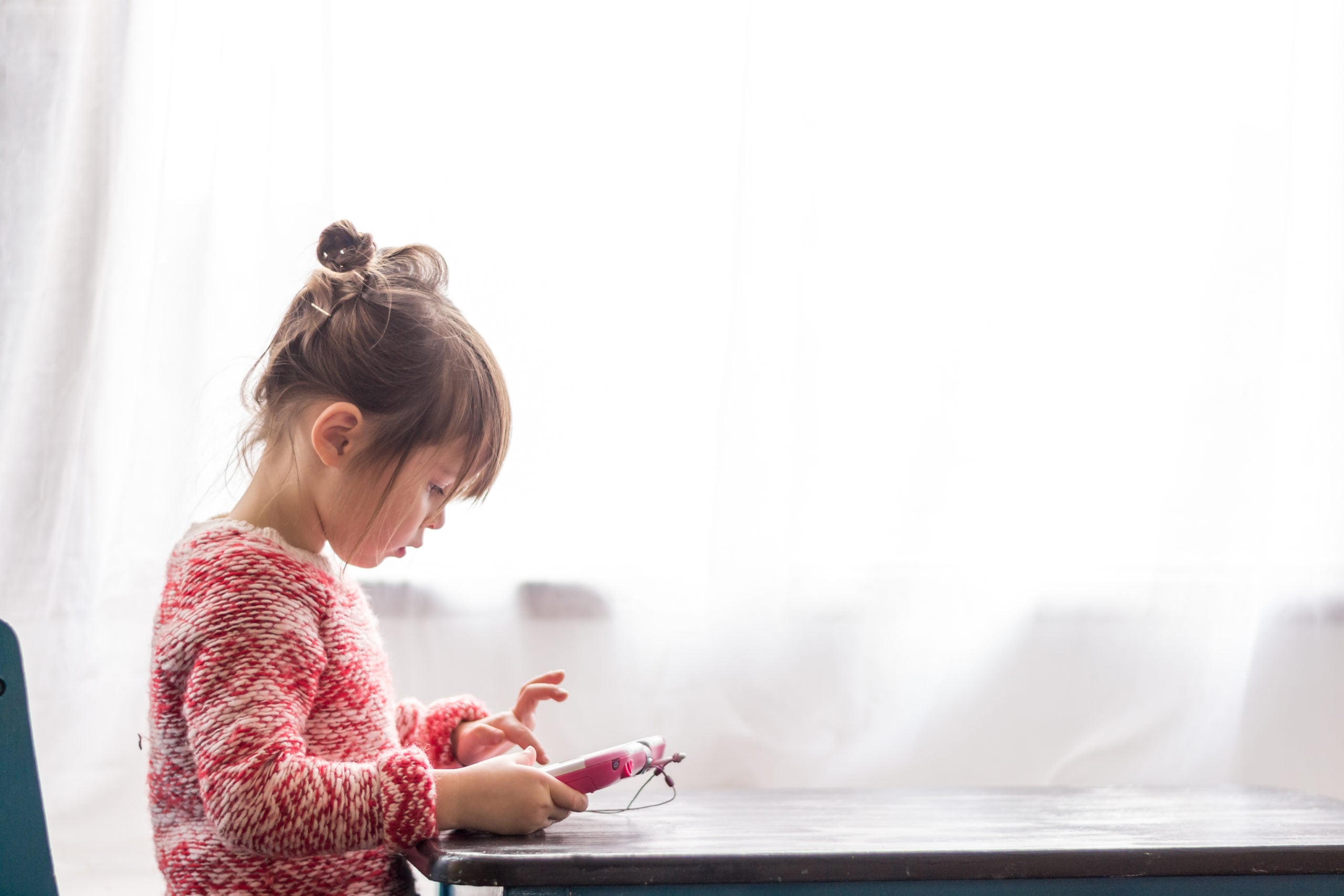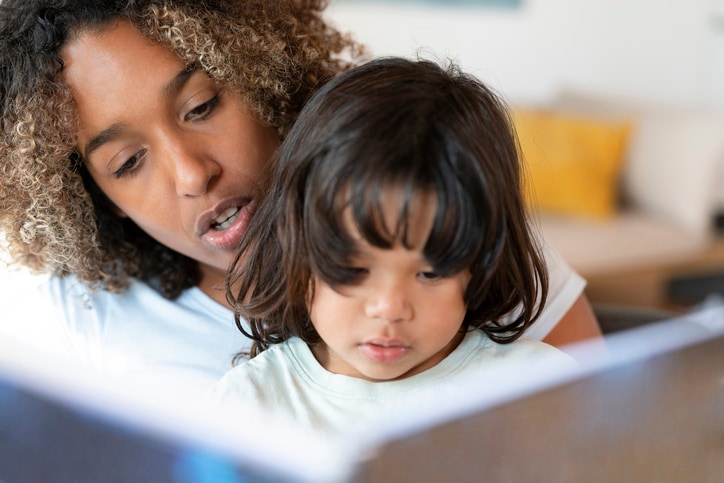In this article
For some families, it may feel like a rite of passage, but the reality is, preschool isn’t required for children. In fact, only 19 states in the U.S., as well as Washington D.C., mandate kindergarten for kids.
“No state in the U.S. legally requires children to attend preschool,” explains Julie A. Riess, co-founder and chief early education officer at Day One Early Learning Community in Poughkeepsie, New York, who adds: “In New York state, kindergarten isn’t required either.”
Despite it not being a requirement, though, many families opt to send their child to preschool for a variety of factors, including the social-emotional and cognitive benefits (more on this shortly). That being said, in many cases, preschool isn’t free or full-day, so there are considerations for parents, particularly those in dual-income households.
Here’s what to know about the requirements surrounding preschool for kids, the benefits, factors to weigh and more.
Key takeaways
- Preschool is not required, and many children don’t begin formal schooling until kindergarten or first grade. Yet, many families choose preschool for its social, emotional and academic benefits. Access, cost and structure can vary.
- For those who opt out of preschool, there are alternative ways to support early learning, such as playgroups, home-based care and more.
- Whether a child thrives as part of a group or could use extra support developing social skills, preschool may offer valuable opportunities for interaction.
Is preschool required?
No, preschool isn’t legally required anywhere in the United States. “Compulsory education laws typically begin with kindergarten or first grade, depending on the state,” notes Aimee Fearing, vice president of education at New Horizon Academy and who holds her doctorate in education.
According to the National Center for Education Statistics, in 2022, 59% of 3- to 5-year-olds were enrolled in school.The older the child, the higher the enrollment. (The enrollment rate for 5-year-olds was 84% vs. 47% for 3- to 4-year-olds.)
“I didn’t send my kids to preschool until they were 4, because they didn’t seem ready before then and weren’t potty-trained,” notes Claire Werner, a mom of two in Belmar, New Jersey. “I was lucky enough to have my parents helping out with child care, though, so that may have influenced our choice.”
Defining preschool
Preschool is an educational program serving children ages 3 to 5. Historically, preschool has only lasted a few hours a day. Part-time hours are based on preschool being historically grounded in women staying home and raising children, nots Riess. However, these days, preschool can take on a full-day model, with hours starting around 9 a.m. and ending around 3 p.m.
Some half-day pre-school programs are either religious-based or run through a public school and don’t have to adhere to state or federal child care regulations, explains Riess. That being said, regulations vary across states and preschools.
Preschool can also include state-funded programs, such as universal pre-K (UPK). “These programs are typically full-day (6 hours) and [are operated through] the state education or federal education departments,” she continues. “UPK programs may have specific curriculum and daily schedules.”
UPK programs, it should be noted, are free or low-cost, whereas private preschools require tuition (cost is based on a number of factors, including location, center, hours and more).
Currently, the only states that have universal pre-K, regardless of income, are:
- Florida.
- Oklahoma.
- Vermont.
- Washington D.C.
Read more:
How to determine if preschool is the right choice
When it comes to deciding whether or not to send your child to preschool, there are various factors to consider beyond whether or not your kiddo will enjoy attending.
Note the basics
A few practical details to explore, according to Riess:
- Cost. According to the National Institute of Early Education, the average cost of preschool in the U.S. is between $400-$1,300 per month.
- Space openings. Many preschools have waitlists.
- A preschool’s daily schedule. How long can your child attend every day?
“With more parents of young children in the workforce, many preschools have either closed or extended their hours to become early childhood care centers,” points out Riess. Early childhood care centers, it should be noted, are often state-licensed and may provide child care for infants through children aged 5.
Think about the big picture
From a more personal standpoint, Fearing adds that when choosing preschool, your decision may be impacted by your family’s values, lifestyle and the child’s development.
“If a child thrives around peers or needs help developing social skills, preschool may offer valuable opportunities for interaction,” she says. “Preschools often follow predictable schedules that help children learn transitions and expectations. Additionally, different programs emphasize different philosophies, such as Reggio Emilia [an approach in which children are empowered to self-direct their own learning through play] [and] traditional academic models.”
Get interactive
During the decision process, Fearing recommends parents:
- Visit schools.
- Observe classrooms.
- Talk to educators.
She explains that doing this can help parents determine whether a particular preschool, or preschool in general, aligns with their child’s personality and developmental stage.
“If a child thrives around peers or needs help developing social skills, preschool may offer valuable opportunities for interaction. Preschools often follow predictable schedules that help children learn transitions and expectations.”
— Aimee Fearing who holds her doctorate in education
What are the benefits of preschool?
Children who participate in early learning environments, whether it be formal preschool or other structured settings, tend to enter kindergarten more ready than those who don’t, research has shown, Fearing points out. “Preschool helps build social-emotional skills, language development and improved readiness for academic success,” she adds.
Attending preschool can also improve:
- Academics later in life.
- Fine and gross motor skills.
- Self-motivation.
- Self-regulation.
- Independence.
- Conflict resolution.
The best part? All of these skills are honed through play in preschool, notes Johnna Weller, executive vice president and chief learning officer of Learning Care Group.
“High-quality preschool is like compound interest for the brain,” she says. “Every story read aloud and every negotiated turn on the slide grows language, early math and self-regulation skills that keep paying dividends into third grade and beyond.”
Alternatives to preschool
For folks who opt out of preschool, there are other ways to reap some, or even all, of its advantages.
“Take advantage of regular playgroups that are often at libraries, parks or part of a neighborhood group,” says Riess. “Spend time in early childhood environments, which may include going to community events or visiting a children’s museum.”
“Many states have family and group family home-based programs for young children,” Riess continues. “These are registered or licensed programs within someone’s home.” Curriculums and general structure can vary, based on location and operator, so be sure to do your research on the front-end before signing up.
For information on a bevy of options, check out your local Child Care Resource & Referral (CCR&R), which is operated through Child Care Aware of America, a national organization that supports the child care system. “They are experts at matching the needs of the family to the type of early childhood environment,” Riess explains.
Other options, per Fearing, include:
- Home-based learning, where parents follow a curriculum and instruct their kids from home.
- Nature-based programs, licensed programs, where at least 30% of the class day is held outside,
- Co-ops, schools where parents are heavily involved, including helping out in the classroom.
These settings can offer flexible, supportive environments that promote early development and may suit a child’s unique strengths or challenges more than traditional preschool, notes Fearing.
How to consider and support your child’s unique needs
When considering whether or not to send your child to preschool, take heart that you know your child best, says Weller. Consider their unique temperament, learning style and any special supports they need. “After taking that into account, visit programs, observe teacher-child interactions, ask about safety routines, look for evidence of learning and choose the setting where your child looks engaged, comfortable and eager to return,” she says.
And whether you’re exploring a preschool or pre-K alternative, be sure to share info about your child and your family when speaking with administrators.
“As a former early childhood center director, my mantra was always to help the family find the school that fits their goals for their child and the needs of the family,” Riess says. “This includes everything from schools with a particular religious or cultural focus, to schools that welcome children with developmental needs. Share questions and concerns — the more schools know about your hopes, dreams and needs, the better they will be able to support your child’s early development.”
A final note for parents considering preschool
While preschool is not required, it comes with a number of benefits, including helping prepare kids for kindergarten and beyond. That being said, it’s important to weigh your family’s schedule, budget and your child’s personality.
And know that if you opt out of preschool, there are ways kids can still reap many of the benefits, including simply spending time with other children. “In general, providing your preschool-aged child with regular times to play with other children is important for learning how to have a friend and be a friend,” says Riess. “Nothing replaces play-based experience with other kids for learning social skills.”





